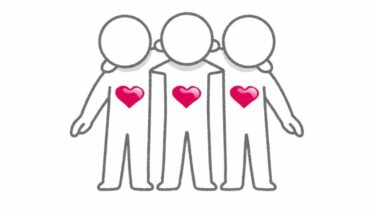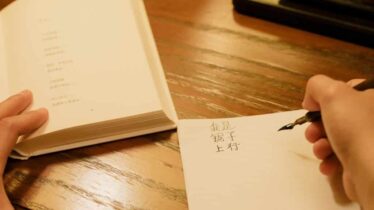How to Say Good Luck in Chinese
Expressing good luck in Chinese involves various phrases for different contexts. This article will guide you through the different ways to say “good luck” in Chinese, how to respond to these wishes, and some specific phrases suited for particular situations! It will be fun, and understanding these expressions will help you through conversations and show your appreciation for Chinese culture at the same time.
Two most common Ways to Say Good Luck in Chinese
祝你好运 (Zhù nǐ hǎo yùn)
One of the most common ways to wish someone good luck in Chinese is 祝你好运 (Zhù nǐ hǎo yùn). This phrase translates directly to “I wish you good luck” and is suitable for most situations! It’s a phrase you can use when someone is about to undertake any effort, whether it’s a job interview, a journey, or any other activity.
加油 (Jiā yóu)
Another popular phrase is 加油 (Jiā yóu), which literally means “add oil” but is used to mean “keep it up” or “go for it.” or cheering on someone: “You can do it!” This phrase you may hear most often as a form of encouragement! It carries a sense of motivation and support. You may hear it at sporting events, regarding exams, or when someone is working hard to achieve a goal.
Additionally, 顺利 (Shùn lì) is a word that means “smoothly” and is used to wish someone a smooth process. It is commonly used in contexts where you want to convey that you hope everything goes well without any hitches. For example, you might say this to someone who is about to start a new job or embark on a project.
Responding to Good Luck in Chinese
When someone wishes you good luck in Chinese, a simple and polite response is 谢谢 (Xiè xiè), which means “thank you.” This basic expression of gratitude is suitable for any situation and shows that you appreciate the other person’s well wishes.
If you want to express a more heartfelt thanks, you can say 谢谢你的祝福 (Xiè xiè nǐ de zhù fú). This translates to “thank you for your blessings” and conveys a deeper sense of gratitude. It’s particularly appropriate if someone has taken the time to give you a more thoughtful or specific good luck wish.
For more variety, you could also use:
- 非常感谢 (Fēi cháng gǎn xiè): “Thank you very much.” This phrase is more formal and shows a higher level of appreciation.
- 多谢 (Duō xiè): “Many thanks.” This is a casual yet sincere way to thank someone.
- 感谢你的鼓励 (Gǎn xiè nǐ de gǔ lì): “Thank you for your encouragement.” This phrase acknowledges the motivational aspect of their well-wishess.
- 谢谢你为我加油 (Xiè xiè nǐ wèi wǒ jiā yóu): “Thank you for cheering me on.” This is perfect when someone says “加油” to you.
Related Reading:
- Post: How to Say Thank You in Chinese
- Post: Chinese Quick Guide – Audio
- Video: How to say basic sentences such as ‘Thanks’ and ‘Sorry’ in Mandarin Chinese
- Video: 5 ways to say thank you in Chinese
Ways to wish Good luck in Chinese in Specific Situations
Peperiksaan
愿你一举成功!(Yuàn nǐ yī jǔ chénggōng!)
Literal Translation: “May you succeed in one go!”
Literal Translation: “Wish you a smooth exam!”

Literal Translation: “May your journey be downwind.” A metaphor wishing someone a smooth and successful journey through an endeavor, often used when someone embarks on a new career path or business.
When wishing someone good luck in their career, you can use 马到成功 (Mǎ dào chéng gōng). This idiom means “immediate success,” and it literally translates to “horse arrives and success follows.” It conveys the hope that success will come swiftly and easily, often used when someone is starting a new job or business venture.
Literal translation: “The flag opens, and victory is achieved,” suggesting that as soon as one starts a new endeavour, success is guaranteed. This phrase is often used to encourage someone who is embarking on a new challenge or project.
Literal Translation: “Great luck and great profit.” It is often used in business contexts to wish someone prosperity and success. It can also be used during celebrations like weddings or grand openings.
Festivals
Literal Translation: “May everything be as you wish.”
Literal Translation: “May all your wishes come true.”

Common Questions
1. How do you say “wish me luck” in Chinese?
– To say “wish me luck” in Chinese, you can use 祝我好运 (Zhù wǒ hǎo yùn). This directly translates to “wish me good luck”.
2. What is jiayou in Chinese?
– 加油 (Jiā yóu) means “keep it up” or “go for it.” This phrase is often used to cheer someone on, whether they are in a competition, working hard on a task, or facing a challenging situation.
3.Do the Chinese say bless you?
– Typically, Chinese people do not say “bless you” when someone sneezes. The common response to sneezing in Chinese culture is usually silence. However, some people might say 保重 (Bǎo zhòng), which means “take care,” or 身体健康 (Shēn tǐ jiàn kāng), meaning “good health.” These phrases are more about expressing concern for the person’s well-being. When you keep sneezing the person may ask you 感冒了吗 (Gǎnmàole ma?) – have you caught a cold? – to express their concern.
4.How to wish someone good luck in Chinese?
– You can say 祝你好运 (Zhù nǐ hǎo yùn) or 加油 (Jiā yóu) to wish someone good luck.
5. What does 3 sneezes (突然打很多喷嚏) mean in China?
– In Chinese superstition, sneezing can mean someone is thinking about you. Three sneezes in a row might indicate that someone misses you. While this is not taken seriously in essence, it’s a fun thing to imagine!
6. What to reply to “祝你好运” (I wish you good luck)?
– A simple and appropriate response is 谢谢 (Xiè xiè), which simply means “thank you.”
Conclusion
By understanding the above phrases and their contexts, you can effectively express and respond to good luck wishes in Chinese. This will not only help you in conversations but also enhance your appreciation of the many ways in which Chinese culture communicates well-wishes and encouragement!





